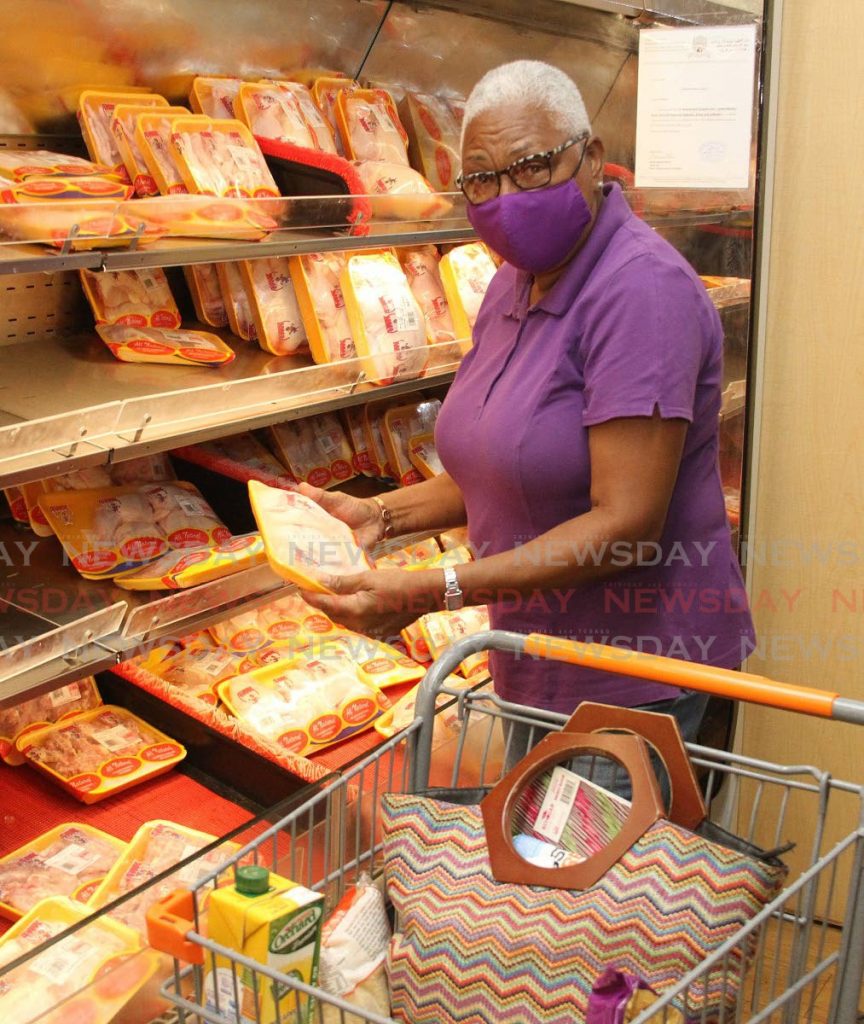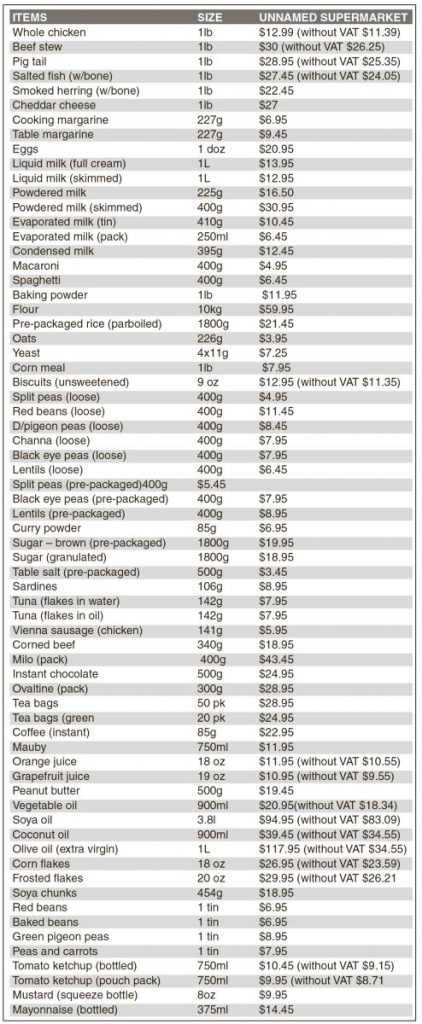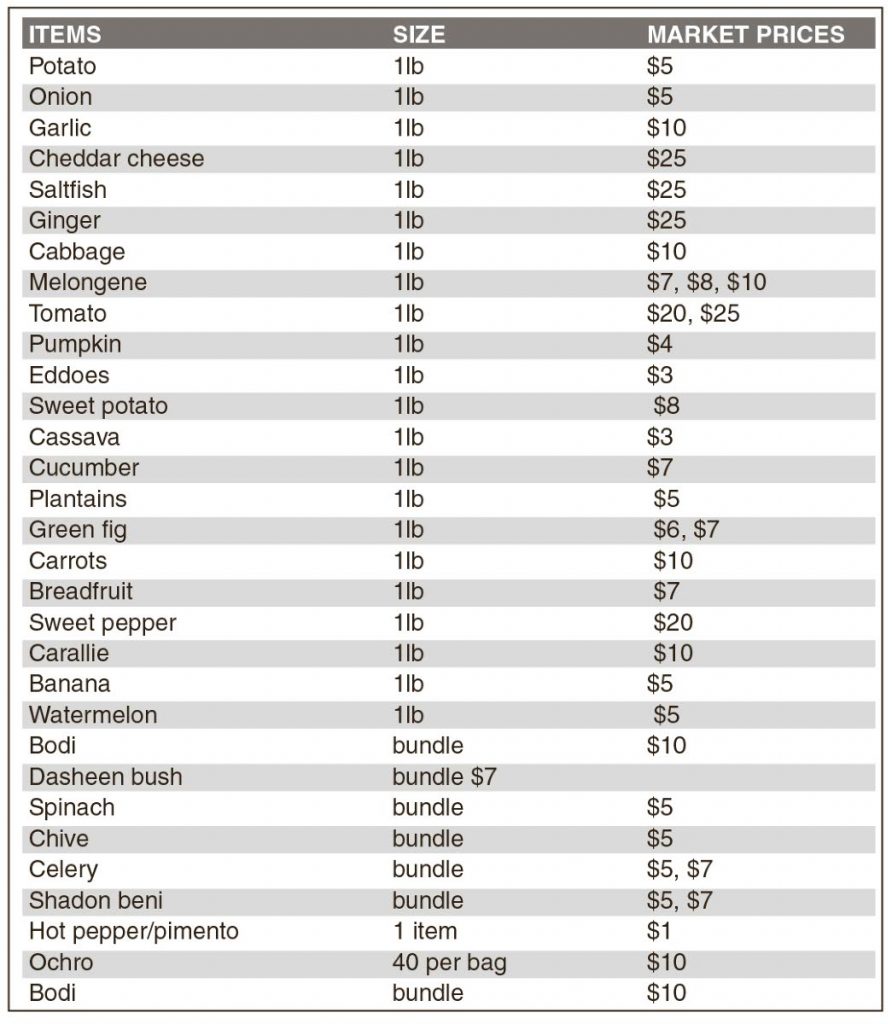Consumers: Food costs more than $17.50 minimum wage

Imagine being able to only afford the basics to maintain your family’s survival?
This is the dilemma for many citizens who make the bare minimum wage of $17.50 per hour. With the rising cost in food prices and prices on items needed to get by daily, people have been finding it hard to make ends meet.
In the recent 2021/2022 budget titled Resilience in the Face of a Global Pandemic, Finance Minister Colm Imbert announced several measures to assist the varying groups of society.
For the average person/household, basic food items were exempt from value added tax (VAT), the continuation of rebates for water and electricity, and soon to be introduced is fuel cash card to offset the cost of increases in the price of motor fuels.
The allocation for the agriculture sector was $1.25 billion, an increase of $51 million when compared to last year’s allocation and an additional $300 million stimulus package, on the heels of last year’s $500 million.
Food prices have skyrocketed since the onset of the covid19 pandemic. Importers have been faced with challenges for foreign exchanges and increased freight and shipping costs.
In providing immediate relief for consumers, effective November 1, biscuits, cooking oil, canned vegetables, fish and meat, cornflakes, curry, juice, sausages and ham, ketchup, bottled water and pigtail would be exempt from VAT.
Will these measures help your food basket? Many people told Business Day that it would not, and the budget did not benefit the majority of the population.
Business Day caught up with some shoppers in San Fernando and Chaguanas who agreed that it was a matter of survival and nothing more.
They said working for the minimum wage only afforded the basic food necessities, payment of bills (in some cases rent) and other items that were critical to maintain proper hygiene.
Lousiana Benjamin said she does not earn a minimum wage salary and the number of days she worked fluctuated on a weekly basis.
She said, “It is very hard in the market and grocery. Things are very expensive. I just picked up things that I needed and couldn’t afford to buy anything outside of that.
“I have to cut back on a lot of things. I make my own bread, cakes and other things. Everything I do for myself at home just to cut back on cost.”
She said her weekly grocery bill crossed $400 and it excluded meats, cheese and other dairy products.
“I can’t buy chicken, the piece of cheese I paid $20 for, was over $40 now. That VAT removal made no sense. How much pigtail I will eat?” Benjamin explained.
Benjamin said she supported three children who still attended school and to also meet those needs were challenging.
She said her salary covered her basic food items and did not take into account travelling fares and other important things, like clothes and healthcare, and internet costs that her family needed.
Lean Damion described the price of a loaf of bread as equivalent to an hour’s pay of $17.50 as ridiculous.
He said while people were commenting on boycotting vendors and suppliers, not everyone had the means necessary to do so because of the time constraints due to long work hours or second jobs to make ends meet and family commitments.
“It is very hard all-round. The price of flour hasn’t raised yet so many flour-based items have. Although VAT has been removed and going to be removed prices are still high. I don’t see any difference.
“My monthly grocery bill is $900 and some items I have had to cut out completely. Add market expenses and well, I just working to meet these expenses. It’s hard to save anything,” Damion said.
Another consumer Helen Charles said a family cannot survive on a single income at the minimum wage.
“It is hard to but I’m trying. There are certain things I have to cut out. It’s not a healthy way to go but it is a sacrifice we all are making. Why VAT remained on healthy foods and removed from things that adds no health benefits to people.
“The budget and the announcements in food and other so-called relief for people does not make sense.”
Supermarket Association of Trinidad and Tobago president Rajiv Diptee said exogenous price shocks in the food and distribution sector have affected the demand and supply equation that the sector has been unable to balance.
Speaking at the association’s virtual post-budget forum on Tuesday evening, he said while consumers have more basic food items on the zero-rated list, the announcement meant a removal of 12.5 per cent tax but it does not affect the cost incurred by importers to import the item.
“Once you aren’t manufacturing a good, making it, processing it you have to purchase it at the source which is from foreign companies at the price they have to fetch for the good. That price we have absolutely no control over. TT are price-takers at the source.
"The VAT is within the remit of the government and free market economy forces globally, where demand and supply are concerned, dictates the price of the product domestic importers have to pay.”
Additionally, he pointed out that some of the items listed to be zero-rated were already there and SATT was awaiting further clarification and classification of the items. Late Wednesday evening, Imbert in a statement said VAT-free items will include a wider range of oils and spices, such as black pepper and ground geera and dhal, roti skin, canned meats and vegetables, cereals, teas, coffee, peanut butter, table butter, soya (minced and chunks), cheese slices, ham, turkey slices, pigtail, mayonnaise, ketchup, packaged soup, juices and biscuits.
Before Monday' budget, Business Day compiled a list of grocery items and its prices with and without VAT. Kindly note these are estimates. What does your weekly/monthly food bill look like? Are you able to cope with the rise in prices?

Business day also visited the market and complied the average price for produce. It should be noted that prices vary daily and are estimates.


Comments
"Consumers: Food costs more than $17.50 minimum wage"